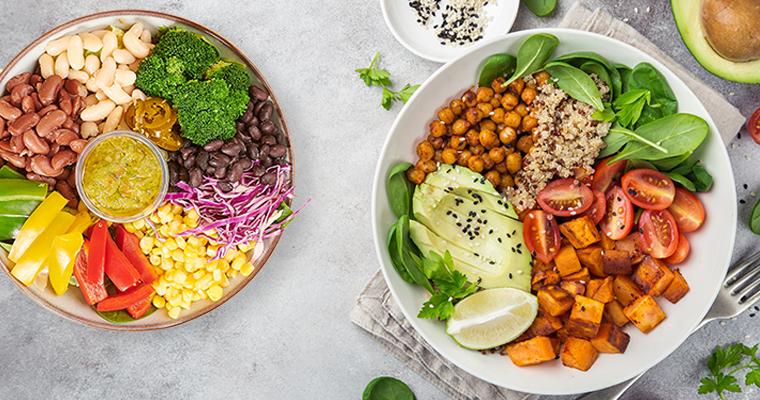Creating Tasty Dinners That Help You Achieve a Calorie Deficit
In the quest for weight loss, fundamentally changing your eating habits is a crucial endeavor. Dinners, serving as typically the final meal of the day, are pivotal in maintaining a caloric balance crucial for weight reduction. This article delves into strategies for preparing flavorful and satisfying meals that still conform to a calorie-deficit framework.

Understand the Concept of a Calorie Deficit
Understanding what constitutes a calorie deficit is foundational before embarking on meal preparation. A calorie deficit occurs when you ingest fewer calories than your body expends, leading your body to tap into stored fat as an energy source, thus driving weight loss over time.
How does this apply to dinner?
– Dinner can be crucial in managing your daily calorie intake since it is typically the last meal of the day.
–
Ensuring dinners are nutrient-dense yet lower in calories is key to preventing late-night snacking, a frequent obstacle in weight management.
The Role of Dinner in a Balanced Diet
Achieving a calorie deficit does not necessitate the neglect of essential nutrients. Your body needs a balanced intake of macro and micronutrients to function optimally, and dinner is an excellent opportunity to fulfill these nutritional needs whilst controlling calorie intake.
Nutritional Focus:
–
Protein: Lean meats, fish, tofu, and legumes provide excellent protein sources.
–
Fiber: Consuming whole grains and vegetables aids in prolonging satiety.
–
Healthy Fats: Include moderate amounts of healthy fats such as avocados, olive oil, or nuts.
Tips for Crafting Low-Calorie Dinner Options
Generating delightfully flavorful dinners that are low in calories requires creativity and a selection of practical strategies to boost both taste and fullness without adding excessive calories. Here are some effective methods:
1. Volume Eating:
– Prioritize foods that are high in volume but low in calories like salads, vegetables, and broth-based soups, which allow for larger, more satisfying portions that are low in calories.
2. Flavor Enhancements:
– Choose to season with
herbs and spices instead of resorting to high-calorie dressings or sauces. Spices such as cumin, cilantro, or basil can dramatically elevate a dish.
3. Cooking Methods:
– Opt for cooking techniques like grilling, steaming, or baking rather than frying. These methods enhance flavor without the additional calories.
Specific Low-Calorie Dinner Recipes
These recipes are designed to foster a dinner calorie deficit while being both delicious and filling.
Grilled Lemon Herb Chicken with Quinoa Salad:
–
Ingredients:
– Chicken breast
– Lemon juice
– Fresh herbs like rosemary or thyme
– Cooked quinoa
– Chopped vegetables like cucumber, bell peppers
–
Instructions:
– Marinate the chicken in lemon juice and herbs before grilling.
– Combine the cooked quinoa with fresh vegetables, a squeeze of lemon juice, and a hint of olive oil.
– Serve the chicken over the quinoa salad for a balanced meal.
Vegetable Stir-fry with Tofu:
–
Ingredients:
– Tofu
– Mixed vegetables like bell peppers, broccoli, carrots
– Low-sodium soy sauce
– Garlic and ginger
–
Instructions:
– Start by sautéing garlic and ginger, adding the vegetables and tofu shortly after.
– Blend in soy sauce and continue cooking till the vegetables are tender but still crisp.
Mindful Eating Practices at Dinner Time
The manner in which you eat is just as important as the meals you eat, particularly at dinner time when the day’s stresses may peak, potentially increasing hunger levels uncontrollably.
Practice mindful eating to complement your dinner calorie deficit:
–
Eat slowly and savor each bite. This practice aids in better recognizing when you are actually full.
– Avoid distractions such as television to prevent unintentional overeating.
–
Listen to your body’s hunger signals to avoid consuming unnecessary calories.
Beverages and Their Impact on Calorie Deficit
Beverages during dinner can inadvertently contribute significant calories.
Choosing the right drinks is essential:
– Prefer water, herbal teas, or sparkling water enhanced with a splash of lemon to maintain your caloric deficit.
– If choosing alcoholic beverages, opt for lighter varieties and limit the serving size.
Overcoming Challenges in Maintaining Dinner Calorie Deficit
Adhering consistently to a calorie-deficit diet can be challenging. Cravings, social settings, and emotional eating can swiftly undermine resolve.
Coping Strategies:
– Prepare in advance for social outings or restaurant meals by reviewing menus online and selecting lower-calorie dishes ahead of time.
–
Keep healthy snacks readily available to curb strong cravings before they result in overconsumption at dinner.
– Employ stress-reduction techniques such as yoga or meditation to manage emotional eating effectively.
Conclusion
Creating appetizing dinners that support a calorie deficit requires thoughtful planning, the inclusion of nutrient-rich ingredients, and an acute awareness of eating behaviors. Consistently opting for lighter, yet satisfying, dinner choices dramatically supports weight loss objectives and enhances overall health.
By integrating the strategies highlighted, you can enjoy delicious meals without surpassing calorie limits, ensuring each dinner contributes meaningfully towards a healthier, more fulfilled you. Strategic and mindful eating remains a cornerstone of a journey towards optimal health, serving both physiological and psychological needs effectively.

